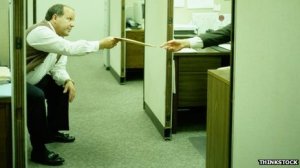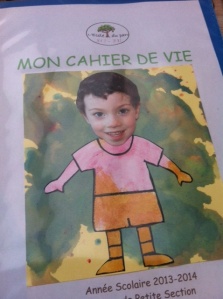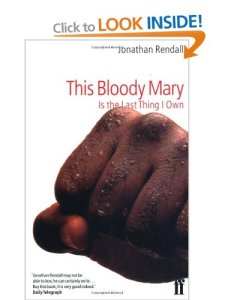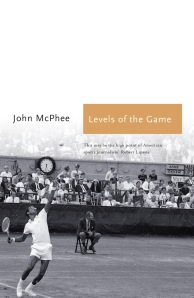When I was about six or seven, I became obsessed with finding out what my father did when he ‘went to work’. My memory is fixed in a windowless corridor of him walking out the front door in his charcoal grey overcoat and galoshes. Beyond that how he spent his day was a mystery.
The very few times that my brother and I went to his office – a flat-packed network of corridors made of soundless carpet, telephones that silently flashed red and miles and miles of filing cabinets that opened and shut with the clang of a prison door – I always left wondering what he actually did there.
At the beginning of this year, Louis started at a pre-school in an attempt to instil some rigour into his day ahead of starting school properly in September. At 8.05 every morning we leave the house – he on his scooter, me pushing my bike, carrying his lunchbox. When we part company there is always a sense of excitement, on my part at least, of finding out at the end of the day what he has done.
Except that when asked – and you can ask him 10 or 20 times and the answer is the same – ‘I dunno’. And it was only when he came back for half term with a bag full of collages, photographs, masks – a circus tent full of parapharnelia – that it became clear what he spends his days doing.
This was a blinding, if unrequested, reminder of the clear banality of my own office day, and of the inescapable cliche of becoming our parents. It’s different paper, and there are no filing cabinets, nor carpet, but the action of pushing paper around is a technique that has been well passed down the family. It is not for nothing that I’ve never brought either of the boys into work – what exactly would there be to show them?
All of which set loose the kind of mid-life crisis (I am writing this on my birthday) about what I wished I could tell them I do. That day-dreaming was fed in part by reading This Bloody Mary is the Last Thing I Own by Jonathan Rendall, who died last year. Rendall wanted to be a boxer, but he wasn’t much good at it. When he quit he decided to become a boxing manager instead. This is his story, which he wrote in a basement flat on the Queenstown Road that I cycle past every day, thereby giving me a tangible if phantom connection – if that is logically possible – to both him and the book. It opens with possibly the greatest sentence of any sports book I have ever read:
‘It was a few hours after Frank Bruno attacked me at Betty Boop’s Bar in the lobby of the MGM Grand that I decided to get out of boxing.’
Forget Richard Ford or even the whirling dervish Mailer – That’s the kind of day that would make the kids sit up.
The genesis of This Bloody Mary can be traced, in part, back to John McPhee‘s seminal account of a single tennis match between Arthur Ashe and Clark Graebner in 1969. In the course of its slender 40,000 words Levels of the Game plots lines and shifts of momentums in both the match, the country and histories of the protagonists (Ashe representing the Democratic ideals of America at that time, Graebner – Herr Graebner, as he was sometimes called – that of the Grand Old Party) .
As William Fiennes writes in the introduction of the first edition to be published in the UK, McPhee was as interested in the structure of the game and how to write about as the game itself. It was an interest instilled in him by his English teacher Olive McKee, ‘who required her students to submit three compositions every week. This could be a poem or story, but each piece had to be accompanied by a diagram that showed the structure – “anything,” McPhee writes, “from Roman numerals I, II III to a looping doodle with guiding arrows and stick figures. The idea was to build some form of blueprint before working it out in sentences and paragraphs.” Olive McKee’s emphasis on the shape of the thing never left him.’
He sets the game up accordingly:
Arthur Ashe, his feet apart, his knees slightly bent, lifts a tennis ball into the air. The toss is high and forward. If the ball were allowed to drop, it would, in Ashe’s words, ‘make a parabola and drop to the grass three feet in front of the baseline.’ He has practised tossing a tennis ball just so thousands of times. But he is going to hit this one. His feet draw together. His body straightens and tilts forward far beyond the point of balance. He is falling. The force of gravity and a muscular momentum from legs to arm compound as he whips his racquet up and over the ball. He weighs a hundred and fifty-five pounds; he is six feet tall, and right-handed. His build is barely full enough not to be describable as frail, but his coördination is so extraordinary that the ball comes off his racquet at furious speed. With a step forward that stops his fall, he moves to follow.’
Perhaps this kind of artistry can never be borne out of an office life. And it would take another blog entry or more to lament the passing of the sports writer, but when I read these rare books it makes me pine for a life that I could never had led, but wish I had. At the very least it would allow me to come home, in my trench coat and galoshes and hold up a piece of paper and say: ‘Today, boys, I made this’.




Sweet. Date: Mon, 17 Feb 2014 15:56:55 +0000 To: nigelharvie@hotmail.co.uk